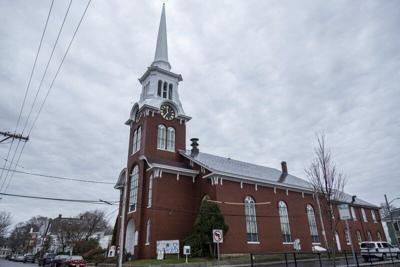During the four weeks before Christmas, Christians celebrate the season of Advent.
The season is a time of preparation to hear again the ancient stories of Jesus’ birth — and receive the gift that Jesus’ life represents. The four Sundays of Advent — with their themes of hope, peace, joy and love — remind us of the qualities we cultivate to make a place for Christ to be born in us.
For many of us, this season and its sacred stories are associated with magical memories from childhood.
Stories of angels, shepherds and wise men mix with family traditions of finding the perfect tree, baking cookies and sharing gifts. All of these elements help us appreciate the awe and wonder of God touching and changing the lives of ordinary people like us.
But this year, all of our traditions have been disrupted by the pandemic, economic uncertainty and social unrest. Many of us have experienced the distressing emotions of despair, anxiety, irritability and fear — the opposite of traditional Advent values.
Is it possible that Advent has special meaning for us this year, amid the difficulties we face? Advent is a time of spiritual preparation, but Advent is also associated with revelation. This year has been a time of some unnerving revelations in our lives.
The COVID-19 pandemic has revealed weaknesses in our health care systems, particularly for our most vulnerable neighbors. Some of the reactions to pandemic precautions have shown the difficulty balancing concern for the common good with individual liberty, suggesting a narrow understanding of freedom.
The dramatic increase in hunger reminds us of ongoing problems with food insecurity and deficiencies in our food distribution systems. Political polarization reflects conflicts so deep, extending even to questions about what constitutes a fact. The continued protests for racial justice reveal the need for a deeper reckoning with the legacy of racism in this country.
In this environment, where do we find hope? Today, we see the promise that vaccines will be available soon and that new public policies might address concerns about poverty, health care and hunger. These will be significant changes for the better, but there is a risk they will be technical fixes that don’t address our deeper distress and anxiety.
A few weeks ago, I heard a presentation that helped me develop a deeper appreciation of the meaning of hope.
The lecture, by Dr. Anthony B. Pinn of Rice University, reflected on Black theology in honor of theologian James Cone. The lecturer described an understanding of hope that survives even when there is little chance of achieving one’s goals.
According to these theologians, hope that endures, even when there is little chance of success, has sustained the Black church and many other communities facing overwhelming challenges.
I understand that kind of hope, not as a feeling, but as a choice, even an imperative because hope is essential to survival. Without it, nothing is possible.
The good news is that we see people exhibiting this kind of resilient hope — in acts of kindness, compassion and justice for neighbors and strangers alike.
Medical professionals and first responders offer service despite the fatigue, workers do essential labor, teachers and students learn together in new school environments, generous people contribute to food pantries, strangers stand out together for Black Lives Matter.
We are finding new ways to do the work of community, discovering greater strength and resilience as we embody hope.
Advent in 2020 will be a season unlike those we have known in the past, but it may be an even more meaningful time in support of those enduring values of hope, peace, joy and love.
The Rev. Christopher Ney is pastor of Central Congregational Church in Newburyport.
















Commented
Sorry, there are no recent results for popular commented articles.